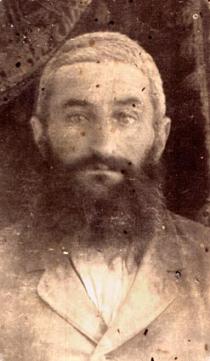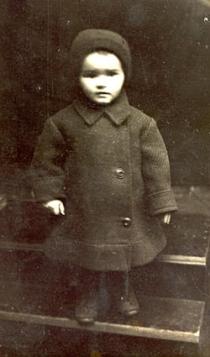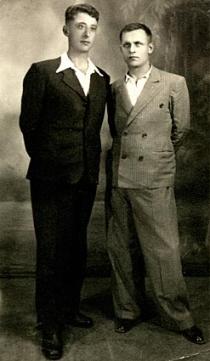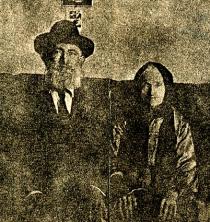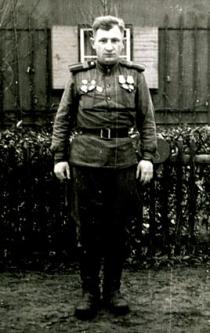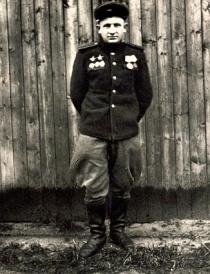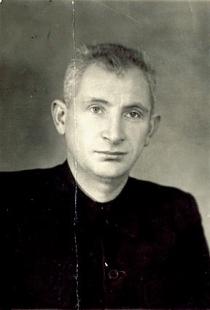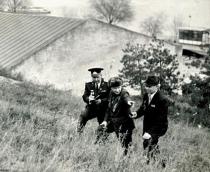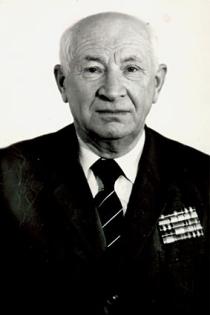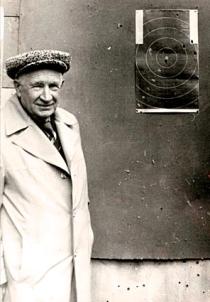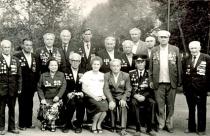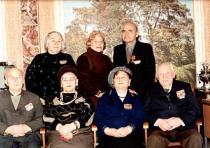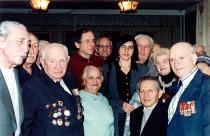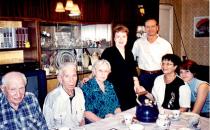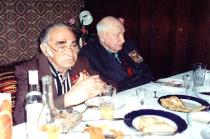This is me, Evadiy Rubalskiy, photographed in Kiev in 1960.
I returned home from the army in 1946. Our annex where we resided before the war was not ruined, however strange it may sound. I moved in there and went to work as a construction plumber in a construction trust. Here was a lot of work to do: Kiev was severely ruined. At first we were to restore the utility lines and the buildings and later we started new construction. I made a big contribution into installation of gas supply lines in Kiev. There was my portrait on the board of honor of our trust. I was the best specialist. In order to fill the gaps in my theoretical knowledge, I entered the course of foremen at the Construction College and finished it successfully. I had all excellent marks in all subjects in my graduation certificate. This course gave me more than any college itself: there is a lot of theory in colleges, and this training course was for the people having practical skills and its objective was to improve actual skills and abilities of practical work.
My aunt introduced me to my future wife Feiga Dudina. Feiga was born in Belaya Tserkov [150 km from Kiev] in 1921. It was a small town with the prevailing Jewish population before the war. The family moved to Kiev. After finishing a Russian general education school Feiga entered the extramural Union Law College [the college was in Moscow, its students studied by correspondence and had exams twice a year]. After finishing the College she became a lawyer.
We got married in 1947. At first we stayed in the annex and later I received an apartment from the construction trust where I was working. In 1948 our daughter Ludmila was born. Our second daughter Inna was born in 1953. My wife and I spoke Russian at home. I had forgotten my Yiddish, and my wife had never known it. We didn't celebrate Jewish holidays at home. We were both atheists and besides, I was a member of the party. We always celebrated Soviet holidays: 1 May, 7 November, the Soviet army Day, Victory Day, New Year and our family members' birthdays. Our daughters grew up as all other Soviet children. They studied in a Russian general education school, were young Octobrists, pioneers and Komsomol members like all other children. They were not raised religious. My wife and I believed religion and traditions to be vestige of the past, something that modern people did not need whatsoever. We had lots of arguments with my wife, till we divorced after living together 21 years. Since then I’ve lived alone.

